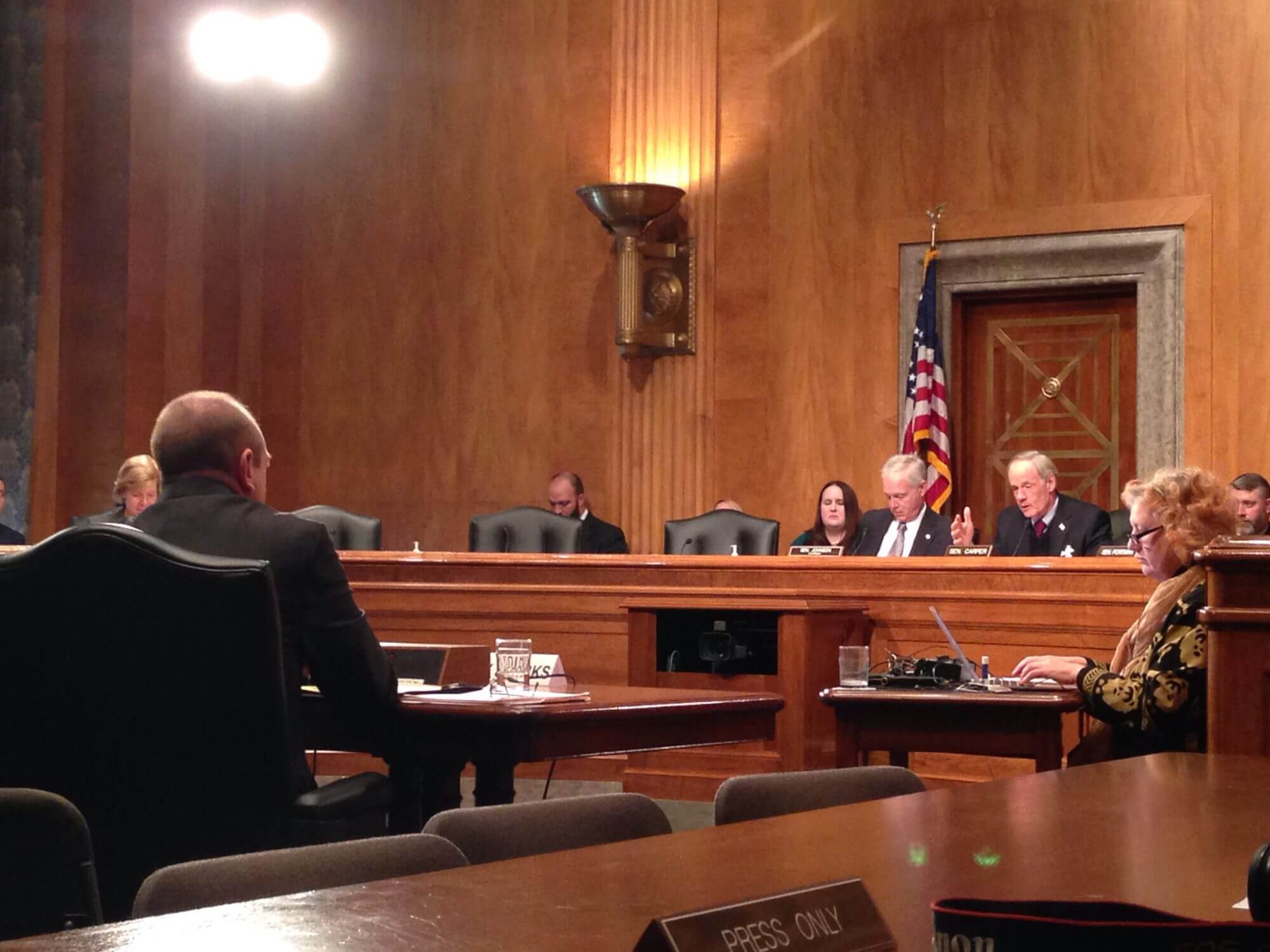WASHINGTON — Big-city police departments have special units for responding to terrorist attacks, but community police departments could be key to preventing future attacks – and they need more money, according to law enforcement experts like former Boston Police Commissioner Edward Davis.
“The community in every city and town across the U.S. has the capacity to play a central role in preventing terrorist attacks,” Davis, who was commissioner during the 2013 Boston Marathon attack, told the Senate Homeland Security Committee on Tuesday. He said that preparing communities to recognize and respond to terrorism and information-sharing between federal, state and local law enforcement are necessary to stop attacks.
“Community policing efforts need to be continuously and properly funded, trained up and they should be audited,” he said. Larger police departments, like New York City’s, have used federal funding to train their officers for terrorist attacks, said NYPD Commissioner William Bratton.
The NYPD has specialized defenses, like a response team of 500 officers with special weapons and body armor, and broader tools, like equipping all 36,000 cops with smartphones.
Bratton said his department has also worked with the FBI, connecting local and federal intelligence, in the FBI-NYPD Joint Terrorist Task Force.
“This 35-year partnership…is a seamless coalition of federal, state and local law-enforcement agencies,” he said.
But the majority of police departments are small and don’t receive the same type of federal support, said Wallace Sparks, chief of the Everest Metro police department in Weston, Wis .Nearly half of all law enforcement agencies have fewer than 10 full-time officers, he said.
“These calls [about terrorism] will likely come to local police departments,” he said. “If the local law enforcement agencies are not aware…then we are missing a key piece of the preventative puzzle.”
Sparks said that big federal grants intended for improving security end up funding bigger cities and miss smaller towns where community police are first responders.
“That training is critical,” he said. “In rural communities, that response is going to be from frontline control officers with whatever equipment they have in their squads.”

